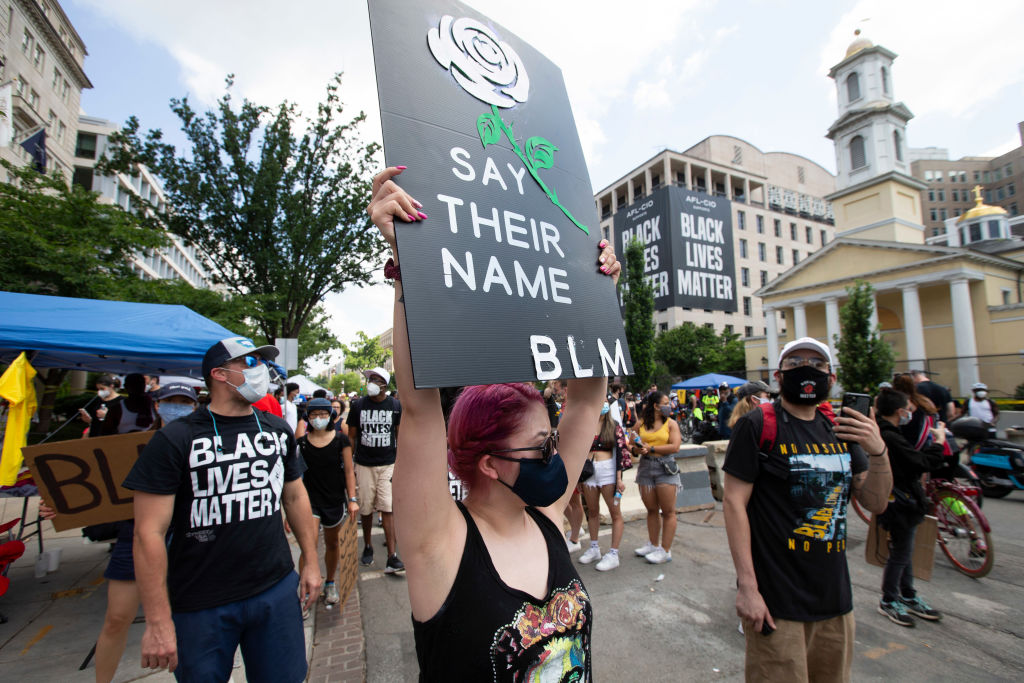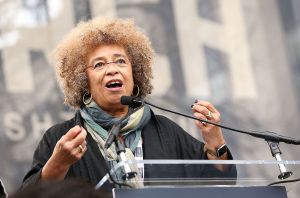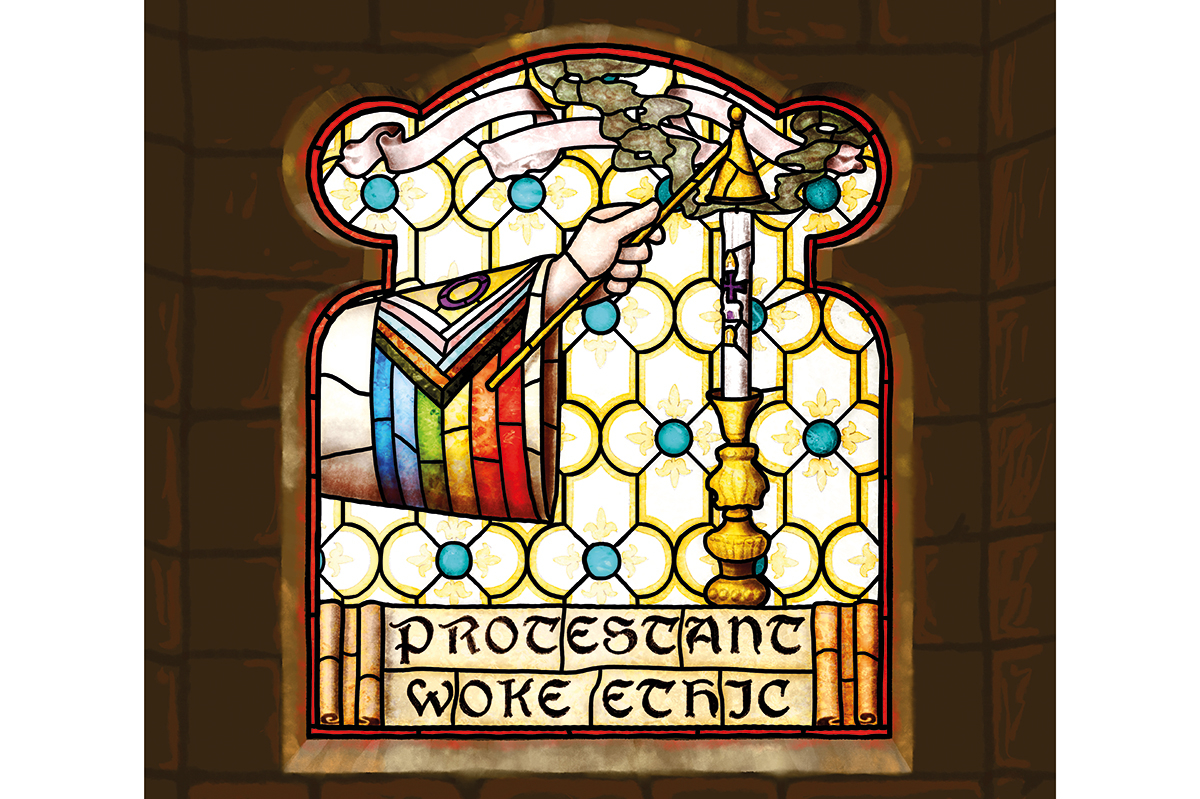It’s a putrid August night in Brooklyn, with hazy orbs floating around the orange light from streetlamps lining a block of bars and restaurants. A dull murmur drifts up the avenue from young drunks limping along toward last call. For S. and me, chain-smoking over pints at our favorite pub, it’s a night like any other we’ve spent together over the past five years or so.
S. is a Black Lives Matter stalwart and budding antifa sympathizer. He’s also burdened with severe angst and around this time of night the gloom really sets in. He becomes angry and only wants to talk about love, or, more accurately, heartache.
It’s only in hindsight I realize that, back when I traveled in progressive circles, all my friends were as miserable as S. They have nice incomes, their own homes, their own businesses, good educations, loving families — all the things I desired. Their unhappiness was less a momentary condition, more a lifestyle. They were all in a perpetual struggle with their emotions.
It was infectious. One can be prone to misanthropy, as I perhaps always will be, without actually being an unhappy person. The more time I spent around these people, however, the more I fell into their gloom.
They were also all smug and upstanding atheists. Marx said, famously, that religion was the opium of the people. What he wrote in full was: ‘Religion is the sigh of the oppressed creature, the heart of a heartless world, and the soul of soulless conditions. It is the opium of the people. The abolition of religion as the illusory happiness of the people is the demand for their real happiness.’ Marx’s argument was that religion’s function is to soothe uncertainty and to calm mankind’s anxiety over its place in the universe and in society.
Faith was among the first things to be banned when the Bolsheviks seized power in Russia in 1917. Some of the most beautiful churches in the world were leveled or became warehouses. According to the communists, religion maintains the status quo and hinders the proletariat from achieving earthly utopia. My old friends probably believe something similar, even if they wouldn’t put it that way.
That is the crux of the political division between left and right. The former believe, despite eons of evidence to the contrary, that mankind and its systems are perfectible while the latter understand mankind’s innate fallibility: that the more one attempts to engineer and perfect the behavior of others, the more chaos results, which is usually where God comes in. Or, as T.S. Eliot once observed: ‘They constantly try to escape/ From the darkness outside and within/ By dreaming of systems so perfect that no one will need to be good.’
America’s Marxists are also proud of their hatred for God. This summer, antifa and BLM rioters in Portland have not only been burning the American flag, but Bibles as well. At the end of May, rioters set fire to the historic St John’s Episcopal Church in Washington DC and returned to vandalize the ‘church of presidents’ the following month. They again congregated outside St John’s to riot following the Republican National Convention in August. St Patrick’s Cathedral in Manhattan was desecrated during Black Lives Matter riots over the summer. Black Lives Matter openly seeks to dismantle the Biblical definition of family and by all accounts champions homosexuality and transgenderism over everyday black lives. If religion is opium, Marxism is crystal meth.
A little over a year ago, I started going to church. I hadn’t been to church in more than a decade, and never by myself, and each sermon I walked into turned out to be a left-wing political rally with pastors lecturing their congregations on ‘systemic racism’, gun control and LGBT rights.
The left’s infiltration of churches is truly an accomplishment long in the making. Joseph Stalin once envisioned a Southern, black nation-state in the US breaking away to become socialist. He attempted to infiltrate the South but abandoned the idea because black people were too Christian. When the Alabama Communist party was founded, they even started meetings with prayers.
Each time I showed up to a new church only to find a rainbow flag dangling out front, I was horrified. This isn’t Christianity, I thought, it’s just a pre-brunch cocktail party for liberals. Then a friend suggested I check out a congregation he dubbed the ‘Fox News church’, not due to a right-wing political bent, but because it was markedly apolitical, just God and the Good Book, which tended to attract a lot of Republicans, apparently.
I went and continued to go back until the government shut down the churches last spring. I was always overdressed, sat in the back, didn’t speak to anyone, listened and sang along timidly. The congregation did smell very Republican, which was nice. But the chaos in our streets, and the corruption in our institutions, has only made me crave it more. In other words, antifa made me Christian.
I’m not alone. While few churches remain open, particularly in blue states, a poll by Pew Research Center found that one in four Americans say the coronavirus has deepened their religious faith, including a majority of black Protestants. Just 2 percent said the virus had left them less faithful.
Maybe that opium was never so bad. Who can watch the destruction of our cities, listen to the inane, directionless logic of Marxists, suffer through the radioactive lies from media, sit by as our politicians all but ban handshakes and smiles and not think to himself: perhaps people don’t have the answer and never will?
Maybe America has gone terribly wrong because of a crisis of faith — not in our leaders or institutions, but in ourselves and our Maker.
This article is in The Spectator’s October 2020 US edition.

























